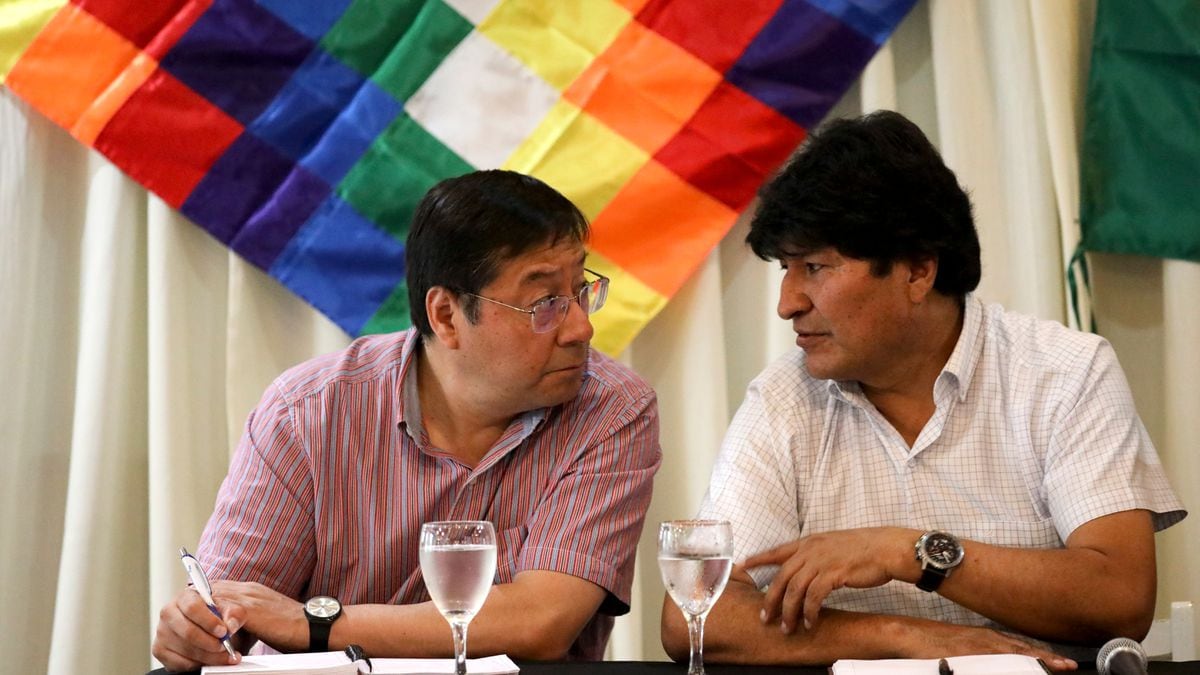The Latin American and European left are concerned about the schism of the Bolivian Movement towards Socialism (MAS), which was previously one of the strongest parties of this current and today is deeply divided into two wings, each of which seeks political elimination of the other. An intercession by the Puebla Group has not achieved that the two opposing leaders, Evo Morales and Luis Arce, find a path to reunification. The idea of organizing unitary primaries that the members of this leftist forum promoted when they were in Bolivia recently died in the cradle. Morales and Arce continue to accelerate towards collision.
Months ago, Cuba invited the two protagonists of the fight to Havana and tried to reconcile them, but achieved nothing, despite the important symbolic place that Castroism occupies in the ideology of the MAS. On March 12 it was the turn of the Puebla Group, created in 2019 to promote progressive dialogue in Latin America and Southern Europe. The former presidents Alberto Fernández, José Luis Rodríguez Zapatero and Ernesto Samper, the Venezuelan vice president Delcy Rodríguez and other personalities of this political institution arrived in Santa Cruz de la Sierra for a colloquium on global financial architecture and to persuade their Bolivian colleagues, with whom they met separately, to find a method of peaceful and unitary resolution of the dispute they are waging over the leadership of the party and the candidacy for the 2025 elections. “One of Bolivia's greatest challenges is the unity of its political leadership,” he declared. Zapatero to the media. While the meetings were taking place, spokespeople from both sectors ruled out any possibility of reaching an agreement.
After the departure of the former presidents, there was the feeling that nothing would change, but on March 31 Evo Morales posted a surprising message on the social network for unity, that we submit to internal primary elections so that our militants define who will be our candidate for the 2025 elections. With the results we will support whoever is elected in the campaign, maintaining the unity of our MAS-IPSP,” he wrote. It was the first time that the former president accepted Arce's participation in an internal competition and that he admitted the possibility of losing.
It didn't take long for the proposal to be rejected. Both the Minister of Justice, Iván Lima, and the presidential spokesperson, Jorge Richter, reminded Morales that he is disqualified from participating in elections and, therefore, also in primaries. They were referring to a ruling by the Constitutional Court from the end of 2023, which restricts the administrations of presidents, parliamentarians, governors and mayors to a maximum of two, whether continuous or discontinuous. Since Morales has already been president three times and has remained in power for 14 years, longer than any other Bolivian in history, he could never run again, according to the ruling that the Government defends. He assures that he will do it, since the Constitution only prohibits more than two continuous reelections and in Bolivia, as in most of Latin America, an indefinite number of discontinuous reelections has always been allowed.
Before launching his proposal to resolve the
impasse
through primaries, Morales had declared that the representatives of the Puebla Group “affirm and affirm [that] they are not going to allow the MAS to be outlawed nor to disqualify Evo as a candidate for president.” ”. The opposition, which for the most part agrees with the “arcismo” that Morales should not be authorized to participate in more elections, responded that “the Puebla Group does not rule in Bolivia.” The ultra-conservative Pro Santa Cruz Civic Committee declared Zapatero and the rest of the entourage “persona non grata.”
Arce and Morales are advancing without slowing down towards a definitive clash over the “ownership” of the MAS, which will be disputed this year in court, and the electoral ban of the former president. He has already warned that, if consummated, his disqualification will bring “social upheaval” to the country. Although he has lost control of the main social organizations, which have preferred to continue governing alongside Arce, Morales still retains his unconditional coca federations, which in the past have been able to paralyze the country with roadblocks and other forms of protest.
Subscribe here to the EL PAÍS América
newsletter
and receive all the key information on current events in the region

